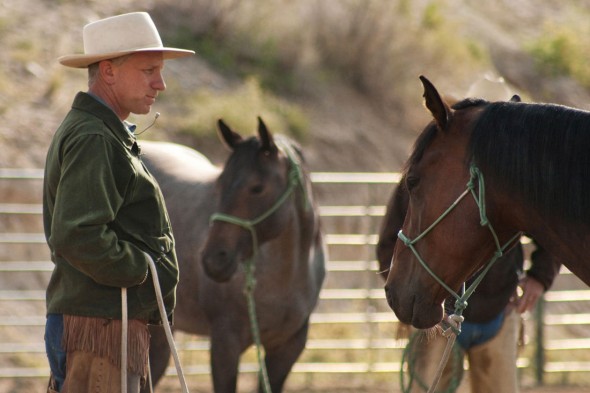Fiction writer Peggy Rambach didn’t leave “Buck” at the theater this summer. She took the man and the documentary portrait of his life and ways into hers.
August 30, 2011
I went to see Buck for the usual reasons I go to see movies: because a friend urged me to, because I like to be informed, culturally enriched, entertained of course, and maybe if the film is good enough, inspired. I do not go to a movie for hope and solace, spiritual guidance and a renewed perspective on how to live a life that is good. And yet, this is what I got by seeing, Buck. Or I should say Buck Brannahan, a man I would have never been so fortunate to meet had it not been for the amazing medium of film. Read complete article >
